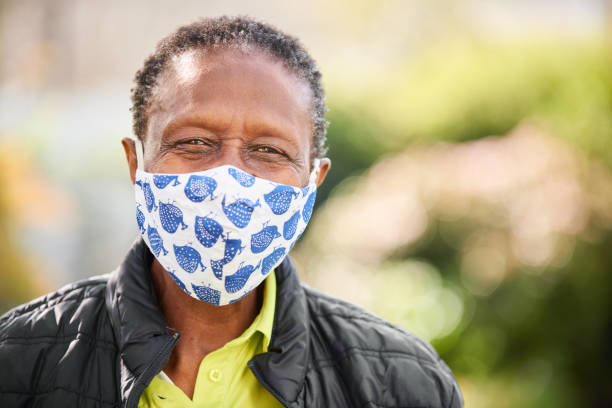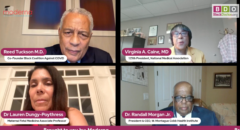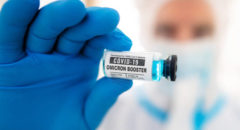
Mirroring a similar recommendation issued last month for the Pfizer COVID-19 vaccine, an expert advisory panel to the U.S. Food and Drug Administration on Thursday recommended a half-dose booster shot of the Moderna vaccine be given to certain recipients six months after their second shot.
Panelists recommended that everyone aged 65 or older who received the two-dose Moderna regimen get a third dose, as well as any younger adult who might be at high risk for COVID-19 due to a medical condition or a job that increases their exposure to SARS-CoV-2, The New York Times reports.
RELATED: ‘Mix and Match’? Study Supports Following J&J Vaccine With Pfizer, Moderna
What the data shows
The data presented was not particularly decisive, committee members say, but they note that a precedent had been set in September when the FDA gave emergency authorization to booster shots for the millions of Americans who'd gotten the Pfizer-BioNTech vaccine.
The evidence of a need for booster shots was clearer for the Pfizer vaccine, however.
In data presented to the panelists last month, one study from the U.S. Centers for Disease Control and Prevention found that four months after a person's second dose of the Pfizer vaccine, its effectiveness in preventing illness requiring hospitalization fell from 91% to 77%.
But with the Moderna vaccine, the drop-off over time was much less dramatic, making the justification for any booster shot much weaker.
Acknowledging that, Moderna argued instead that a booster could still be useful in preventing mild or moderate forms of COVID-19.
As part of the data presented, Moderna says its study found that
antibody levels to SARS-CoV-2 rose by 1.8 times after people received a booster shot.
But the company narrowly missed another threshold set by the advisory panel: The committee hoped to see a fourfold increase in neutralizing antibodies in 88.4% of study participants who got boosters, but the Moderna study observed such a rise in 87.9%, according to the Times.
RELATED: Merck Says COVID Pill Reduces Risk of Death and Hospitalization
One expert in infectious disease was dubious that boosters for younger, healthier Moderna vaccine recipients are necessary.
"The key question to focus on is whether there is evidence of erosion of protection against hospitalization with COVID," Dr. Amesh Adalja, a senior scholar at the Johns Hopkins Center for Health Security, in Baltimore says. "In those age or risk groups where this has occurred, a booster may be warranted."
However, he says that "it is unclear what benefit those at low risk for hospitalization gain from a booster, as there is not enough data to show that boosters protect for a significant amount of time against mild breakthrough infections."
Adalja says that's especially true for the Moderna product, "as it has been associated with less waning [of protection] than other COVID vaccines."
RELATED: Johnson & Johnson Announces Submission of Emergency Use Authorization for Booster Shot
What's next?
The FDA is not obligated to follow its advisory panels' decisions, but it typically does.
The FDA still needs to authorize the Moderna booster shot. This will be followed by a weigh-in from the CDC, whose advisory committee will meet on October 20. A rollout of the Moderna booster shot could happen shortly after. Although Moderna's booster shot is not yet authorized, 1.5 million people have received a third Moderna dose in the U.S. so far, according to the CDC.









